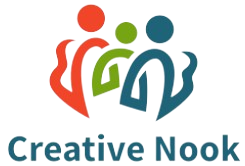Memory plays a crucial role in multi-tasking, influencing how well we can juggle multiple activities at once. Understanding this relationship can help enhance productivity and performance in various settings, from professional environments to everyday tasks.
Understanding Memory Types
Memory can be broadly categorized into several types, each playing a different role in multi-tasking performance. Let’s delve into these memory types and their specific impacts on our ability to multi-task efficiently.
- Sensory Memory: This is the shortest-term element of memory. It acts as a buffer for stimuli received through the five senses.
- Short-Term Memory (STM): Also known as “working memory,” this type of memory temporarily holds information for manipulation and task execution.
- Long-Term Memory (LTM): This memory type is responsible for storing data for prolonged periods, which can be retrieved when needed.
Each of these memory types contributes differently to multi-tasking performance. For instance, while sensory memory provides the initial input, short-term memory is integral in managing simultaneous tasks. Long-term memory helps in applying learned skills and knowledge to new situations.
Memory’s Role in Multi-Tasking
When engaging in multi-tasking, the brain continuously shifts its focus from one task to another, relying heavily on short-term memory. This memory type allows for the temporary storage of information, such as remembering a phone number long enough to dial it. Without robust short-term memory, efficiently handling multiple tasks becomes challenging.
| Memory Type | Role in Multi-Tasking |
|---|---|
| Sensory Memory | Buffers initial input from the environment |
| Short-Term Memory | Holds and manipulates information for ongoing tasks |
| Long-Term Memory | Retrieves relevant information and skills |
Cognitive Load and Short-Term Memory
The brain has a limited capacity for handling short-term tasks at any given moment. Cognitive load refers to the amount of mental effort being used in the working memory. When the cognitive load exceeds the brain’s capacity, performance declines, leading to errors and inefficiency. Therefore, managing the cognitive load is essential for effective multi-tasking.
Factors Affecting Cognitive Load
- Task Complexity: The more complex a task, the higher the cognitive load.
- Task Similarity: Similar tasks can compete for the same cognitive resources, making it harder to manage them simultaneously.
- External Distractions: External stimuli can take up cognitive resources, leaving fewer available for the primary tasks.
Strategies for Enhancing Multi-Tasking Performance
Given the critical role of memory in multi-tasking, enhancing memory function can significantly impact multi-tasking performance. Here are some strategies to consider:
Improving Short-Term Memory
- Mental Exercises: Activities like puzzles and memory games can strengthen short-term memory.
- Mindfulness Practices: Mindfulness and meditation can improve focus and working memory capacity.
- Healthy Lifestyle: A balanced diet, regular exercise, and adequate sleep support cognitive functions, including memory.
Managing Cognitive Load
- Task Scheduling: Break down complex tasks into smaller, manageable parts.
- Minimizing Distractions: Create a distraction-free environment to focus better on tasks.
- Using Tools: Employ task management tools and apps to keep track of multiple tasks efficiently.
Case Studies and Real-World Applications
Research has shown that individuals with better-developed short-term memory tend to multi-task more effectively. For example, surgeons, pilots, and air traffic controllers undergo rigorous training to enhance their working memory and manage high-stress, multi-tasking environments.
Moreover, a 2020 study at Harvard University found that cognitive training could significantly improve short-term memory and, consequently, multi-tasking performance. Participants who engaged in regular mental exercises exhibited better task-switching abilities and made fewer errors compared to those who did not.
Applications in Everyday Life
- Education: Students can benefit from memory-enhancing techniques to better manage their coursework and study schedules.
- Workplace: Employees can use cognitive training to improve productivity and handle multiple projects simultaneously.
- Personal Tasks: Everyday chores and activities can be managed more efficiently with a strong short-term memory and reduced cognitive load.
Conclusion
Memory significantly affects multi-tasking performance, particularly through its influence on our cognitive load and short-term memory capacity. By understanding and enhancing these aspects, we can improve our ability to manage multiple tasks effectively. From mental exercises to lifestyle changes, various strategies can help boost memory function and optimize multi-tasking abilities.
